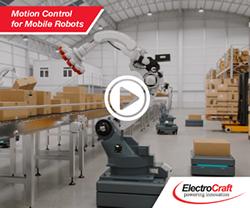ROS Electric Emys Beta Now Available
Debian packages are now available for the ROS Electric Beta release. This beta release is in feature freeze: stacks that have reached "1.0" status will only receive bug fixes from this point forward so that others can easily integrate with this new release.
Debian packages are now available for the ROS Electric Beta release. This beta release is in feature freeze: stacks that have reached "1.0" status will only receive bug fixes from this point forward so that others can easily integrate with this new release.
non-Ubuntu Linux users: We are still completing integration of Electric with non-Ubuntu Linux platforms, we do not recommend you use this release on those platforms.
stack maintainers: now is a good time to test your stacks for compatibility with Electric as we are in feature freeze. You can check the debian build status page to see if your stack is currently compatible with Electric.
ROS Electric is one of our biggest releases in terms of new features, so we will need your help making the final release as good as possible. We have always strived to integrate mobility, manipulation, and perception libraries together in ROS, so we are very proud that perception_pcl, based on the PCL 1.1 release, and arm_navigation are both reaching their first stable release in ROS. There are also great new features like "interactive markers" in RViz, improved URDF/COLLADA libraries, tf optimizations, and more.
You will be able to use ROS Electric on more platforms than ever before: Android, Arduino, and even Windows. All three are still very unstable and will need a lot of community support to get to stable releases in Fuerte, but we encourage you to try them out and give feedback. We have also updated rosdep (REP 111, REP 112) to make it more extensible and provide more integration options on platforms like OS X.
Changes in Electric may require updating your software for compatibility. One of the biggest changes we are making is moving more thirdparty ROS packages to be standard system installs. For example, OpenCV is now installed via the same debian package provided in the standalone release. This move towards standard system installs enables greater code portability and streamlines integration, but it does in some cases require changes to your build files in order to integrate properly. Also, although we strive for backwards compatibility, changes in thirdparty libraries as well as removal of deprecated features may require updates to code.
Many of the other updates are to reorganize software to be smaller, more modular, and easier to maintain. We have taken advantage of the new 'unary stacks' feature to release pluginlib, filters, xacro, and stage separately. In general, we have broken apart the common and geometry stacks into smaller components and we have also transferred ownership of the kdl package (orocos_kinematics_dynamics stack) to the Orocos developers -- this is a trend that we hope to continue moving forward.
What's new (More at http://www.ros.org/wiki/electric/Planning):
tinyxml, yaml-cpp, eigen, and opencv are now installed as normal system dependencies. This means that you will have to build against them explicitly. An example of what this looks like is documented here: http://www.ros.org/wiki/yaml_cpp
Eigen is now fully on version 3
common and geometry stacks have been broken apart, though are still backwards compatible
interactive_markers in rviz
PCL 1.1
OpenCV 2.3
Lots of deprecated stuff was removed
As this is still the beta period, documentation is still in flux. We appreciate your support and contributions with finding out-of-date documentation in addition to filing tickets for any bugs or other issues that you may find.
Featured Product

ElectroCraft's Motion Control for Mobile Robots
ElectroCraft is showcasing its award-winning mobile robot technology including their powerful and compact wheel drives, high-torque-density brushless DC motors, precision linear actuators as well as servo motor drive technology at a variety of conferences and tradeshows including the Boston Robotics Summit. Robotics Summit is the premier symposium for the sharing of ideas, technology, and market developments for robotic technologies across industries. Beyond a showcase and pitch of product, ElectroCraft is eager to participate in the collaborative discussion of challenges and opportunities that will shape the near and long-term robotic marketplace.
